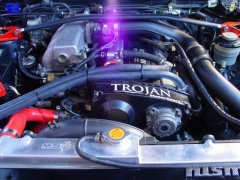Post Your Ideal Physique
Announcements
-
Similar Content
-
Latest Posts
-
Duh... to answer my own silly question, it's actually described in the FSM... ...400 pages away at the end of the manual, for RB25DE/DET signal descriptions, it cites the TPSwitch signal action, is dependent on the TPSensor value ~ this tends to infer the builtin POT voltage signal is the primary, and the switches are fallback/secondary should the POT fail/TPSensor signal lost (and switch alone with no TPSensor signal allows for base idle speed setting).... makes sense... they (TPS units) used to fail/wear the POT with time, they're not exactly built to last ~ having the switch as a redundancy gets around this...(or, it's less likely both signals would be lost as they're on different power rails)... and of course wrt RB26DETT, you have to electrically disconnect the IACV solenoid from the harness, to defeat idle air control...
-
Same thought crossed my mind ~ depends on how one connotes 'stalling'...ie; gets a rough/stumbling idle as it get warm until it stalls... or... idles ok and simply falls-over when it gets to temp... ...you can test the whole circuit with a couple of resistors ...unplug coolant temp sensor, bridge terminals with a 2K7 resistor (ECU will do cold start), or with engine warm bridge with a 330R resistor (ECU will consider engine to be at normal operating temp)...it's a quick way to check wiring integrity/ECU response when you don't have a multimeter handy ...
-
By Murray_Calavera · Posted
They also make them with the motor mounted on the side -
Just be warned that that turbo will not be a direct re-fit to the car. The exhaust housing is, of course, in the same place. It has to be - it's bolted to the exhaust manifold. So the dump will fit up. But the centre housing is not as long, so the comp housing will move backwards. This will affect both the turbo inlet and the outlet. There is fab work that needs to be done. Yes. it has one, it should have one. Paper gasket.
-







Recommended Posts
Create an account or sign in to comment
You need to be a member in order to leave a comment
Create an account
Sign up for a new account in our community. It's easy!
Register a new accountSign in
Already have an account? Sign in here.
Sign In Now